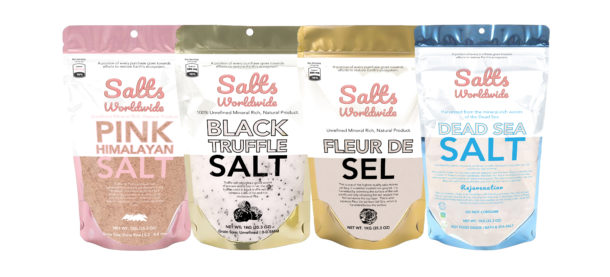Bath salts are simply a collection of chemical designer chemicals. The name is derived from cases where the impurities were disguised as bath salts. However, the salts, white powder, or crystals, tend to be different chemically from Epsom salts. Therefore, when buying dead sea salts, it is important to understand and be aware of the difference between the two.

It is not uncommon to find bath salts in health food stores or specialty shops. In some cases, impure water was used to create the product and sell it to consumers. This practice has been illegal in many countries for some time, though it continues to be tolerated in the United States. While there is no legal definition for “designed drug” in the United States or Canada, most clinical laboratories and pharmaceutical companies consider bath salts designer drugs because the impurities used do mimic the active ingredient used by legitimate drugs.
The impurities in bath salt are primarily salts of caffeine, taurine, thymol, and other aromatic chemicals. Most of the synthetic cannabinoids found in commercial products are manufactured using ethylenediamine and methylethylamine, which are commonly used as preservatives to preserve foods and pharmaceuticals. While some of the designer chemicals may mimic the medical properties of prescription drugs like OxyContin or Percutaneous Electrical Nerve Stimulation (PENS), they have not been deemed habit forming or dangerous.
However, bath salts have been the subject of legal controversy in the United States. There are currently two bills before Congress regarding whether manufacturers are allowed to label bath salt “potentially addictive”. The House of Representatives passed a bill in June 2021 that would classify all designer drug products as schedule II drugs, which includes various synthetic narcotics.
Currently, the only federal law regarding the use of bath salts is the Controlled Substances Act (CSA) against their use in the country. The CSA defines a Schedule II drug as any substance “including a synthetic cathinone or a psychotropic substance that is used for the intention of creating a mental disorder.” However, bath salts do not fall into this category, despite the fact that bath salts are often used by young people to feel alert and creative. The reason for this is that cathinone is an opiate analgesic, which means that it effects the same physical and psychological functions through chemical interaction as morphine and other opiates.
Although bath salts may be “getting a bad rap”, there is no evidence that shows addiction or physical dependency occurs when individuals use them. People often enjoy the effects of bath salts because of the unique, creative and cathartic nature of the experience. Unfortunately, the negative publicity received from these products has caused serious health problems for many users. For example, bath salts may interact with other drugs such as alcohol or caffeine and produce a potentially dangerous combination. If you are considering experimenting with bath salts, be sure to research them thoroughly and talk to your doctor.
It’s also important to be aware that there is an increased risk of suicide and thoughts of suicide after using bath salts regularly. This is due to a combination of possible psychological and physical complications. When you consider the psychological ramifications of suicidal thoughts, it becomes evident why individuals turn to bath salts to distract themselves during potentially tragic situations. However, when considered through the eyes of a doctor, the increased risk of suicide seems a bit overstated.
Overall, bath salts side effects include headaches, a dry mouth, nausea, dizziness and even chest pain. If you notice any symptoms that are above the average user’s experience, contact your doctor immediately. In the case of psychological complications, always seek treatment before resorting to any self-medication techniques. However, if you are experiencing any long-term side effects, be sure to contact your doctor as soon as possible. Unfortunately, there are often no bath salt side effects that can’t be treated with proper care.



